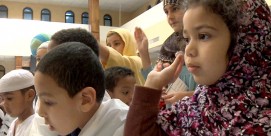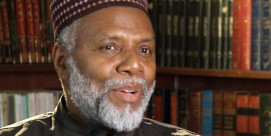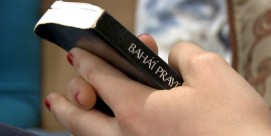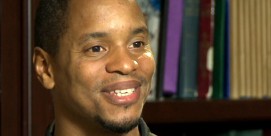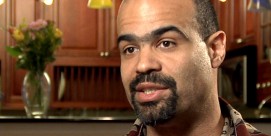In This Episode << SLIDE LEFT TO SEE ADDITIONAL SEGMENTS
The 30 Hour Famine
BOB ABERNETHY, anchor: Although the magnitude of the crisis be overwhelming, the Christian relief group World Vision has come up with a creative way to help church youth groups understand the problem of world hunger and what they can do about it. It’s called “The 30 Hour Famine” and we watched one at Trinity United Methodist Church in Hackettstown, New Jersey.
BILL ANZEL (Youth Leader, Trinity United Methodist Church, Hackettstown, NJ): We start at 1 p.m. on Friday afternoon. So most of them stop eating whenever they finish lunch at school.
We meet here at about six o’clock in the evening. We gather. We do some ice breakers. We do some games. We do some Bible studies during the night.
We do take water breaks. We give them popsicles at intervals. But basically that’s about it for the 30 hours — just drinks when necessary.
We usually sleep for about six or seven hours before we get up and start the activities for the next day.
We had the opportunity to have a table out on Main Street as part of the multi-cultural celebration that’s going on in order to have the kids out there and let them inform people of the town about what we’re doing and what’s going on with the problem of world hunger.

Bill Anzel |
What we try to do is we try to impress on the kids what their money can actually buy in a supermarket. So one of the projects that we do is that we send groups of four, five or six to the local supermarkets. We ask them to purchase items that stock our pantry here at the church, which we then use to feed people who come in who don’t have food.
ABERNETHY: Throughout the 30 hours, the kids also participate in the “Twenty-Nine Thousand Project.” In assembly-line fashion, they cut 29,000 hearts out of red paper, apply a piece of tape to each one and then stick them to the walls of the church’s gymnasium. The hearts are a visual reminder of the 29,000 children worldwide they say who die each day from hunger and hunger-related diseases.

Jenette Mitchell |
ASHLEY LUTZ: You don’t really think of 29,000 being a large number until you actually have to work and do it and do the labor. It puts 29,000 into perspective. And it’s a lot.
JENETTE MITCHELL: Everyone here understands what the world’s going through and if we can make a difference to one person, I think that’s the most important thing.
ABERNETHY: Finally, the 30 hours end with a worship service — and at last — food.
Mr. ANZEL: Everybody chose to be here, and it was because we definitely feel that God called us to be here and do something for each one of our neighbors because we have so much and they don’t.
ABERNETHY: With sponsorships from families and friends, those kids in New Jersey raised more than $13,000 for World Vision and its anti-hunger work.


